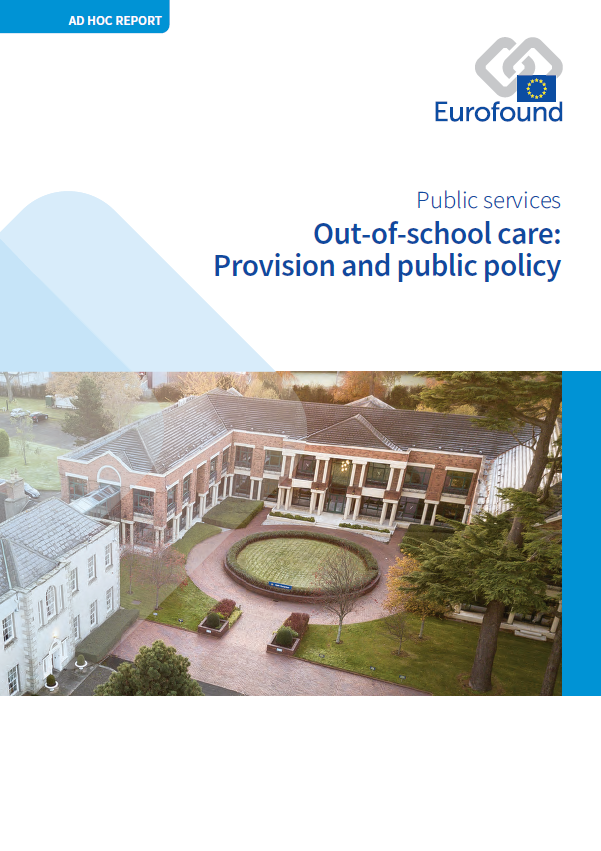
This report summarises out-of-school care (OSC) in the EU and examines related issues, including take-up of OSC, barriers and policy solutions. The report uses information gathered by the Network of Eurofound Correspondents, data from the European Working Conditions Survey 2015 (EWCS 2015), the European Union Statistics on Income and Living Conditions (EU-SILC) and the European Quality of Life Survey 2016. Because there is no single definition of OSC, statistical comparison is challenging and it is difficult to evaluate the quality of OSC. The report recommends: agreeing on a definition of OSC; addressing the gap between standard working hours and compulsory schooling hours; supporting further research into the links between OSC and parental work–life balance; increasing take-up of existing services; establishing quality conventions; and reviewing the working conditions of OSC staff.
Key findings
The incompatibility between parents’ working schedules and the availability of compulsory schooling hours offered for school-age children clearly highlights the gaps of out-of-school care (OSC) in Europe.
There is a gender component in the gap between working hours and childcare, with women most affected. The greatest gaps are in Slovakia, Croatia, Estonia, Finland, Lithuania and Romania.
In most countries, parents in rural areas face greater difficulties in accessing OSC services for school-age children. Cost is another significant barrier, affecting organisations (where additional funding must be found) and parents on lower incomes.
The availability and affordability of OSC services continue to be major challenges for working parents. The quality of available OSC is one factor in determining whether parents choose formal care over informal care or decide not to use childcare facilities at all.
In the EU there is no single and agreed definition of what ‘out-of-school’ (OSC) means. A clear and agreed definition would help policymakers to design, implement and evaluate OSC measures.
Tables
- Table 1: Proportion of children who regularly participate in OSC during term time by country
- Table 2: Proportion of children who regularly participate in OSC during holiday periods
Figures
- Figure 1: Average weekly working hours and average weekly formal childcare hours, EU27 and the UK
- Figure 2: Average weekly hours of formal care and average weekly working hours of couples, EU27 and the UK
- Figure 3: User satisfaction with quality of formal childcare, by age of children, EU27 and the UK
- Number of pages
-
50
- Reference nº
-
EF18108
- ISBN
-
978-92-897-2062-5
- Catalogue nº
-
TJ-02-20-191-EN-N
- DOI
-
10.2806/64774
- Permalink
Cite this publication
Eurofound (2020), Out-of-school care: Provision and public policy, Publications Office of the European Union, Luxembourg.